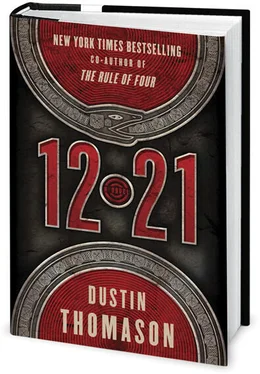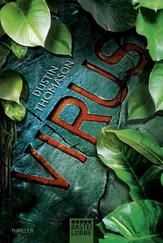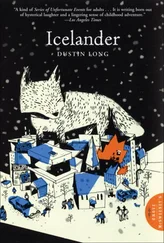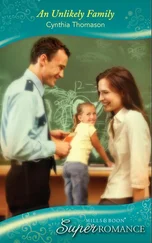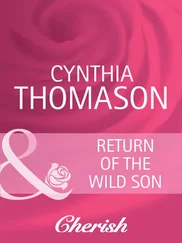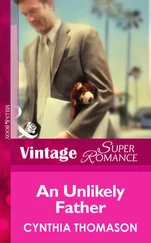“What do you mean?”
“The end of the Long Count cycle is but one rise and fall of the sun from now,” Initia said. “And when it comes, we will witness the end of all we’ve known. Perhaps we already have. But our youngest survived by the grace of Itzamnaaj, most merciful, and they will be our future. It is said in the Popol Vuh that, with each cycle’s end, a new breed of men in-herits the earth. These children are the fifth race.”
12.19.19.17.19
DECEMBER 20, 2012
JUST AFTER MIDNIGHT, CHEL CRADLED SAMA IN HER ARMS AND watching as Initia pressed dough onto the hearthstone in the main house. In the other dwelling, Stanton checked the babies one by one to make sure none showed early symptoms. When Yanala came to get Sama for her exam, Chel found herself surrendering the baby reluctantly.
When they were alone again, Chel told Initia about their arrival. “A ladino attacked me, and I think he was infected. My mother warned me that they could be here, and I didn’t believe her. But she was right.”
“No, that man came here to help, Chel.”
“What?”
“A ladino church group got word that people here were sick, and they came to bring food and supplies,” Initia explained. “Even a doctor. These ladinos wanted to help us. There is no one to blame. Not the ladinos or the indígenas who were cursed. When a man can’t commune with the gods in sleep, he loses himself, no matter who he once was. It would happen to any of us. I am sorry this man was driven to attack you by the curse. But I know his intentions for coming here were good.”
Chel thought of Rolando, and she was struck by another wave of sadness.
“I do not blame you or your mother for feeling this way about the ladinos ,” said Initia. “She suffered so much at their hands, and it is impossible to forget these things.”
Chel pictured her mother’s disapproving face. “She’s been trying to forget everything else about Kiaqix for a long time,” she told Initia. “She didn’t want me to come back. And she certainly doesn’t believe we’ll ever find the lost city. She’s convinced my father’s cousin Chiam never found it, and she doesn’t believe it exists.”
Initia sighed. “I have not thought of Chiam in many years now.”
Chel wondered what, of her childhood, Initia did remember. “Did you hear Chiam read my father’s letters to the village?”
“Your father’s letters?”
“The letters he wrote when he was in prison,” Chel reminded her.
“Of course,” Initia said. “Yes. I listened to them being read.”
Chel heard a hesitation in her aunt’s voice. “What is it?”
“Nothing,” Initia said. “I am old and I do not remember so well.”
“You remember fine,” Chel said, putting a hand on her arm. “What is it?”
“I’m sure there is a reason,” Initia said, almost to herself.
“A reason for what?”
“It has sustained you,” Initia said. “The story of your father’s letters sustained you. This is what she wanted.”
“The letters aren’t just a story,” Chel said. “There are records of them. I’ve spoken to others who heard them, who said they stirred the people to action and inspired them to fight.”
“Yes, that is what the letters did, child.”
“Then what are you saying?”
Her aunt clasped her hands together as if in penitence. “I do not know the reasons your mother has not told you this before, child. Ha’ana is a wise woman, Ati’t par Nim , the cunning gray fox, her spirit animal. But you have a right to know.”
“I don’t understand,” said Chel.
“Your father was a wonderful man, a loving man,” Initia said. “He was dedicated to you and to your mother and to his family, and he wanted to protect them. But his wayob was the tapir, who, like the horse, is strong, not clever. He was a simple man, without the words to put into those letters.”
“My father went to prison for leading the people.” Chel tried not to sound condescending. “When he was imprisoned, he wrote those letters in secret and was killed for them. My mother told me everything that happened to him. Everything he did to fight for Kiaqix.”
“But now ask yourself who told you these stories,” said Initia.
“You’re saying someone else wrote those letters and my mother wanted me to believe that he did?”
“Not just you,” Initia said. “Everyone believed your father wrote them. But my husband was his brother, child. He knew the truth.”
“So who wrote them?” Chel asked. “Someone with him in prison?”
Sticks crackled beneath the hearthstones. “From the time your mother was a young girl, she was never afraid,” Initia said. “Not of the landowners or the army. She would walk up to them in the market when she was only ten years old and spit on their shoes. She rejected their calls to modernize us, to change our ways. She helped stop the ladinos when they wanted to change what was taught in our schools, when they wanted our children to learn their history.”
Chel froze. “My mother?”
“By the time Ha’ana was twenty,” Initia continued, “she was sneaking into the meetings of the elders. When the army hanged a young man from the balcony of the town hall, many became afraid. But your mother tried to convince the men to fight in case the army or guerrillas returned. She said we must arm ourselves. But no one listened to a woman. When your father went to prison, that’s when the letters began.”
Chel looked around at the stone hearth, the hammocks, the small wooden table and chairs on the sascab floor, the huipils hanging to dry. This was a place where Maya women had done their work for a thousand years. Not on the battlefield.
“Why would she lie?” Chel asked.
“Ha’ana understood her people,” Initia said. “She could rally the women, but no man would listen to a woman about the ways of war. To rouse the men to action, Ha’ana needed the voice of a man. When your father was imprisoned, it was the most terrifying thing that ever happened to her but also a chance to be heard.”
“But when he died, she left here. She left all of you behind and never came back. How could the person who wrote those letters leave?”
“It was not easy, child. She worried someone would discover what she’d done and come after her—and you. The only way to protect you was to leave everything here.”
“Why didn’t she tell me?”
Initia put a hand on Chel’s back. “They killed your father because of the letters, even though he didn’t write them. After he was murdered, your mother felt so much guilt. Despite the good her letters had done, she blamed herself for his death.”
Chel was in shock. She had punished her mother for her apathy, for abandoning the place she came from, and Ha’ana had never corrected her. She stayed silent, knowing how hard she had fought and how much she had lost for her people.
“Your mother is the gray fox,” Initia said. “ Ati’t par Nim is always cunning.”
Chel had always thought Ati’t par Nim seemed wrong for Ha’ana. Now she knew better. The ancients believed that the power of the wayob was ubiquitous; they believed in its interchangeability with the human form, its dominion over life, its promise of a person’s potential. The fox made people believe what it needed them to.
Suddenly Chel thought of something. She darted over to one of the supply bags, digging through until she found her codex translation.
“Is everything all right, child?” Initia asked.
Chel had assumed Paktul led the children from Kanuataba into the jungle, to a place in the forest where his ancestors had once lived. Yet throughout the codex, the scribe confl ated his human form with his animal form—his spirit animal. And Chel and her team had been unable to reconcile why the oral history spoke of an Original Trio who’d escaped the Lost City rather than a foursome composed of Paktul, Smoke Song, and the two girls.
Читать дальше
